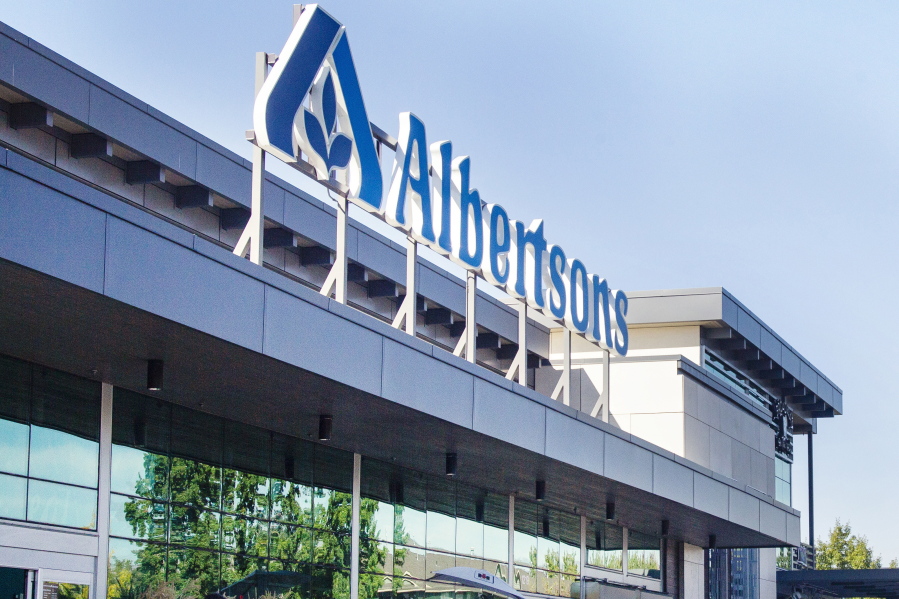SEATTLE — A King County court has temporarily blocked Albertsons from paying a controversial $4 billion dividend to investors as part of the retailer’s proposed merger with rival Kroger.
On Thursday, King County Superior Court Commissioner Henry Judson approved a motion by state Attorney General Bob Ferguson to temporarily block the dividend, scheduled to be paid Monday, until the court can more fully consider whether the payment violates antitrust laws.
The ruling is the latest hurdle for plans to combine two of the nation’s largest grocery chains. Some critics worry the deal could mean reduced competition, higher food prices and even the closure of underperforming locations, including some in Washington state, where Albertsons, which owns Safeway, and Kroger, which owns QFC and Fred Meyer, are among the biggest grocery retailers.
“I am temporarily restraining and enjoining Albertsons from issuing its post-closing dividend,” Judson said at the closing of Thursday’s hourlong hearing. Payment is blocked at least until next Thursday, when King County Superior Court Judge Ken Schubert is scheduled to more closely review arguments in the case.
“There is obviously further information and evidence that needs to be presented,” Judson noted.
In a lawsuit filed Tuesday, Ferguson claimed the dividend is illegal because it could undercut Albertsons’ ability to compete with Kroger during the several years needed to complete the merger.
Ferguson’s arguments were echoed by attorneys general in Illinois, California and the District of Columbia, which on Wednesday jointly sued to block the dividend in federal court in Washington, D.C.
One big concern is whether, having paid out so much to shareholders, Albertsons would be able to keep all its locations open during the merger process.
To win regulatory approval for the merger, Albertsons and Kroger must sell hundreds of locations in areas where they have too much market overlap. So-called divestiture could significantly affect Washington, where Kroger and Albertsons collectively have nearly 350 locations, including more than 150 in the Greater Seattle area, some of them just minutes apart.
Kroger and Albertsons have agreed to put the divested locations in a stand-alone company, managed by Albertsons, for eventual sale to a competing retailer or retailers.
But some antitrust and business experts worry a cash-strapped Albertsons might be unable to keep all those locations open until it finds a willing buyer.
In an statement late Thursday, Albertsons said it “intends to seek to overturn the restraint as quickly as possible because the temporary order was based on the incorrect assertion that payment of the Special Dividend would impair its ability to compete while its proposed merger” with Kroger “is under antitrust review.”
Thursday’s ruling wasn’t surprising, according to legal experts. Courts often grant temporary restraining orders when the requesting parties can show that failure to restrain an action would undermine their larger legal claim, even if that claim has yet to be reviewed or affirmed by a court.
But some experts question whether Ferguson can succeed in the next step: convincing Judge Schubert next Thursday that the state can legally halt the dividend merely on the grounds that it might eventually make Albertsons unviable and the merger anticompetitive.
Although lawsuits by Washington and other states will likely complicate the approval process, “these Attorney Generals will face an uphill climb to stop” the dividend, said Arun Sundaram, a market analyst at CFRA Research who foll



